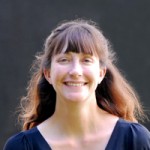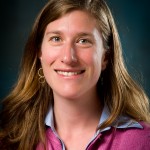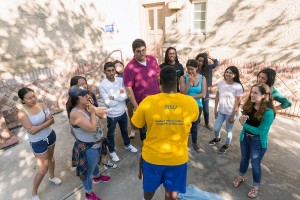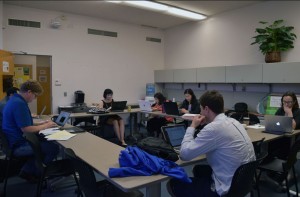- Rachael French
- Miranda Worthen
The San Jose State University Research Foundation has selected the recipients of the 2016 Early Career Investigator Award: Associate Professor Rachael French, from the Department of Biological Sciences, College of Science, and Assistant Professor Miranda Worthen, from the Department of Health Sciences and Recreation, College of Applied Sciences and Arts. The Early Career Investigator subcommittee, which includes Research Foundation board members and faculty, recommended their selection for this year’s honor.
French has received more than $1.2 million in external research funding, either as a principal investigator or co-principal investigator. Using the common fruit fly (Drosophila) as a research model, her lab seeks to identify the neurodevelopmental pathways that are altered by exposure to alcohol during development, and the genes underlying those pathways. Understanding these pathways may lead to future therapeutic measures to treat fetal alcohol syndrome. She mentors both undergraduate and graduate students in her lab. The students who have worked in her lab have achieved exceptional levels of success, winning awards for outstanding presentations and going on to promising academic careers of their own.
Worthen’s research examines the psychosocial experiences of vulnerable populations that have undergone high levels of trauma, with an emphasis on those who have participated in armed forces or have been impacted by exposure to war. Her publication track record is lengthy and impressive, with many of her articles published in high impact factor journals. She has been awarded external funding for her work with the Native American Health Center on suicide prevention, youth empowerment and tobacco use reduction among urban Native youth. She frequently presents at conferences throughout the United States and in Europe.
Save the Date
French and Worth will be honored at SJSU’s annual Celebration of Research, to be held on Thursday, Feb. 16, 2017, from 4 to 6 p.m. in the Diaz Compean Student Union Ballroom.
The SJSU Research Foundation Early Career Investigator Awards recognizes tenure-track faculty who have excelled in areas of research, scholarship or creative activity as evidenced by their success in securing funds for research, publishing in peer-reviewed journals, and carrying out other important scholarly and creative activities at an early or beginning point in their careers at SJSU. Our two recipients are examples of individuals who have achieved this level of success.
The SJSU Research Foundation established two Early Career Investigator Awards to encourage participation in research, scholarship and creative activity beyond those colleges where large numbers of faculty have traditionally participated. One award goes to a faculty member in the Colleges of Science or Engineering, and another is made to a faculty member from all other colleges. Each winner receives a cash award of $1,000 to be used at their discretion.




